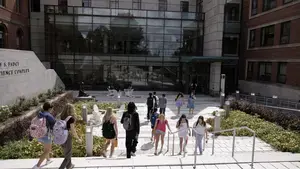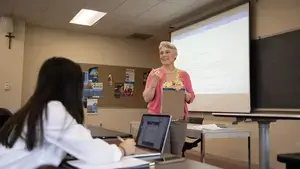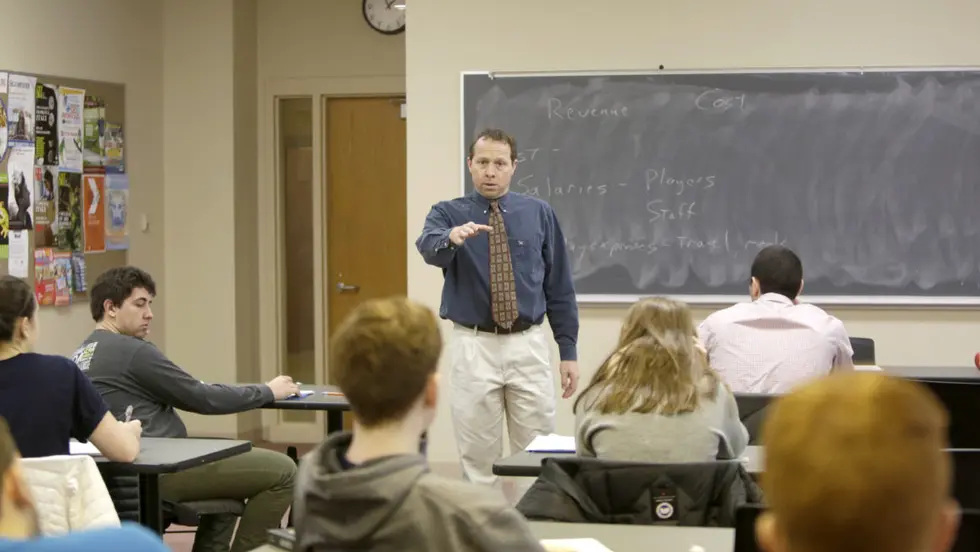
Economics & Accounting
Our faculty are dedicated teachers and scholars who work closely with students to teach them invaluable tools — how to think, problem solve and critically look at issues.
Through small class sizes, one-on-one interaction and practical application, Holy Cross students in the economics and accounting department learn the tools necessary to interpret the fascinating and intricate workings of the local, national and international economy and how financial information is developed for and used by decision-makers.

Why Study Economics & Accouting?
Students can select from either a major in economics or accounting, both of which are very popular on campus. The department also offers opportunities to do research with a faculty mentor through our summer research and honors programs. Accounting majors receive a unique opportunity to complete a program in accounting within the environment of one of the country's leading liberal arts institutions.
Courses of Study
Accounting: Major
The accounting major provides students with the appropriate background for a career in public accounting or industry, but the curriculum also applies for careers in business, government and nonprofit institutions.
Economics: Major
The economics program at Holy Cross is an integral part of a liberal arts education. Whether students choose to explore the wide variety of topics offered by the major in economics or simply take a few courses to augment other fields of study, they are taught the benefits of understanding the theories of economics and how they can be used to interpret current or historical events.
Meet the Department Chair





